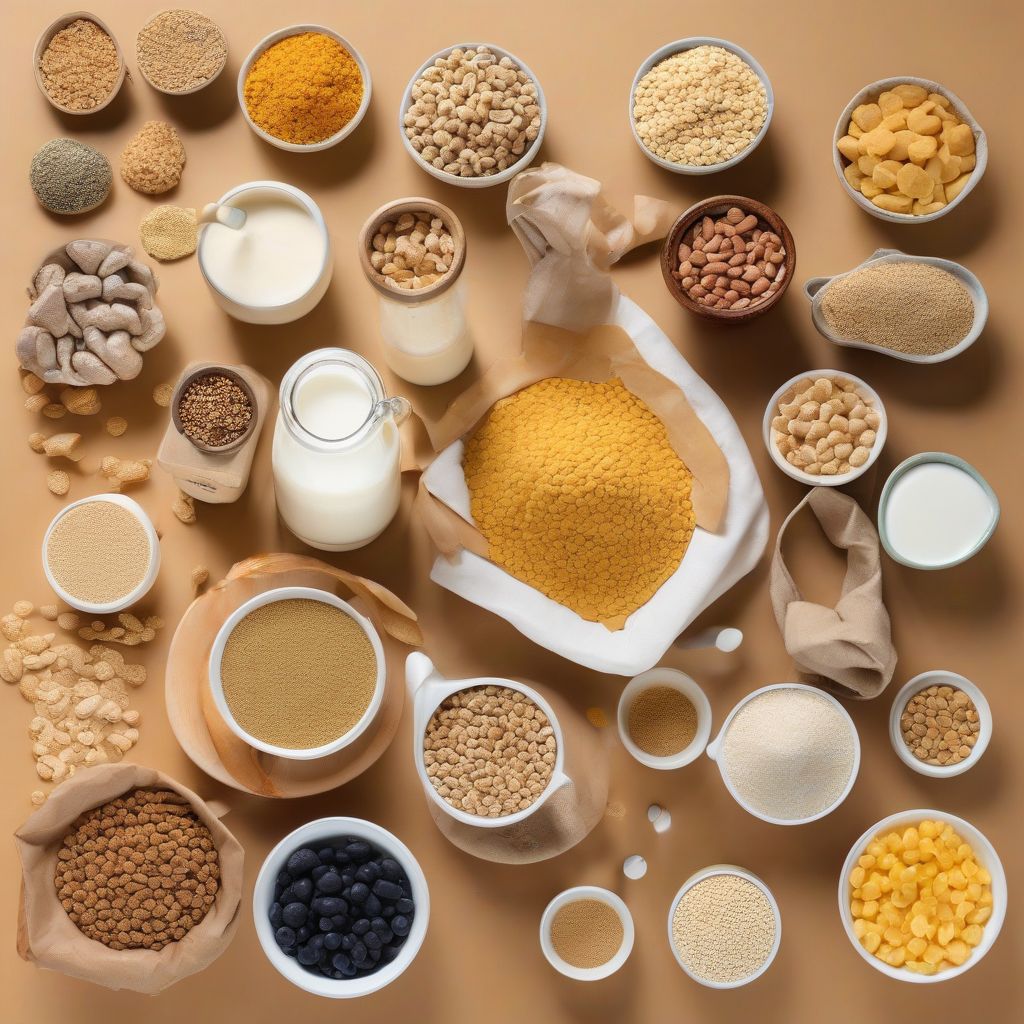Ever dreamt of having boundless energy, glowing skin, and a razor-sharp mind? A healthy lifestyle, especially a well-planned plant-based diet, can be your ticket to this dream. But there’s a common concern: vitamin B12. This essential vitamin plays a crucial role in energy production, cell health, and even DNA synthesis. While readily available in animal products, getting enough B12 on a plant-based diet requires a bit of know-how. But fret not, it’s completely achievable! Let’s dive into the world of vitamin B12 and explore how you can thrive on a plant-based lifestyle.
Understanding Vitamin B12 and its Importance
Vitamin B12, also known as cobalamin, is a water-soluble vitamin your body needs but can’t produce on its own. It’s crucial for a range of bodily functions, including:
- Energy Production: B12 helps convert the food you eat into usable energy, combating fatigue and promoting vitality.
- Nervous System Health: It’s essential for maintaining healthy nerve cells and myelin, the protective sheath that surrounds nerve fibers.
- DNA Synthesis: B12 works hand in hand with folate to make DNA, the building block of all our cells.
- Red Blood Cell Formation: It’s vital for creating red blood cells, which carry oxygen throughout the body.
A deficiency in vitamin B12 can lead to a variety of health problems, including fatigue, anemia, nerve damage, and even cognitive impairment.
Why Vitamin B12 on a Plant-Based Diet Needs Special Attention
Vitamin B12 is primarily found in animal products such as meat, poultry, fish, eggs, and dairy. This means those following a vegan or plant-based diet need to be particularly mindful of their B12 intake.
Unlike some nutrients that can be found in fortified plant-based foods, vitamin B12 is not naturally present in significant amounts in plant-based sources. This is because B12 is produced by bacteria, and these bacteria are typically found in the guts of animals.
Practical Tips to Ensure Adequate B12 Intake
Here’s the good news: ensuring adequate vitamin B12 on a plant-based diet is entirely achievable with a little planning:
1. Embrace Fortified Foods
Many plant-based foods are fortified with vitamin B12, making them excellent sources:
- Plant-Based Milk: Look for fortified soy milk, almond milk, oat milk, or rice milk.
- Breakfast Cereals: Choose fortified cereals to kickstart your day with a B12 boost.
- Nutritional Yeast: This cheesy-flavored condiment is a versatile B12 powerhouse, perfect for sprinkling on popcorn, pasta, or salads.
2. Include B12-Rich Supplements
Supplements provide a reliable way to meet your B12 needs:
- Vitamin B12 Supplements: Available in various forms like tablets, capsules, and liquids. Choose a reputable brand and consult your doctor or registered dietitian for the right dosage.
- B12-Fortified Nutritional Yeast: Some brands of nutritional yeast are fortified with B12, offering a tasty and convenient way to boost your intake.
3. Talk to Your Doctor About B12 Injections
In some cases, your healthcare provider may recommend B12 injections, especially if you have a deficiency or difficulty absorbing B12 from food or supplements.
Debunking Common B12 Myths
Let’s clear up some common misconceptions about vitamin B12 on a plant-based diet:
- Myth: You can get enough B12 from unwashed produce or fermented foods.
- Fact: While some plant-based foods might contain trace amounts of B12 from bacterial contamination, they’re not reliable sources.
- Myth: Short-term B12 deficiency is harmless.
- Fact: Even mild B12 deficiency can lead to fatigue, weakness, and other health issues. Addressing it promptly is crucial.
Making Informed Choices for a Vibrant Life
Living a vibrant, healthy life on a plant-based diet is not only possible but incredibly rewarding. By understanding the importance of vitamin B12 and incorporating reliable sources into your diet, you can thrive while enjoying the numerous benefits of plant-based eating.
 Vitamin B12 Rich Foods
Vitamin B12 Rich Foods
Essential Tips for a Healthy Plant-Based Journey
Remember, transitioning to or maintaining a plant-based diet is a journey, and it’s always best to consult with a qualified healthcare professional or registered dietitian. They can help you create a personalized meal plan, address any nutrient concerns, and ensure you’re getting all the essential vitamins and minerals your body needs to thrive.
Interested in learning more about plant-based eating? Check out these informative articles:
- Essential Tips for Transitioning to Plant-Based Eating
- Common Nutritional Deficiencies in Plant-Based Diets and How to Avoid Them
- Essential Nutritional Tips for a Balanced Plant-Based Diet
- Nutritional Tips for Athletes on a Plant-Based Diet
- How to Educate Yourself About Plant-Based Nutrition
By incorporating these tips and staying informed, you can embrace a plant-based lifestyle with confidence and enjoy a lifetime of vibrant health!
[amazon bestseller=”vitamin b12 supplement vegan”]
